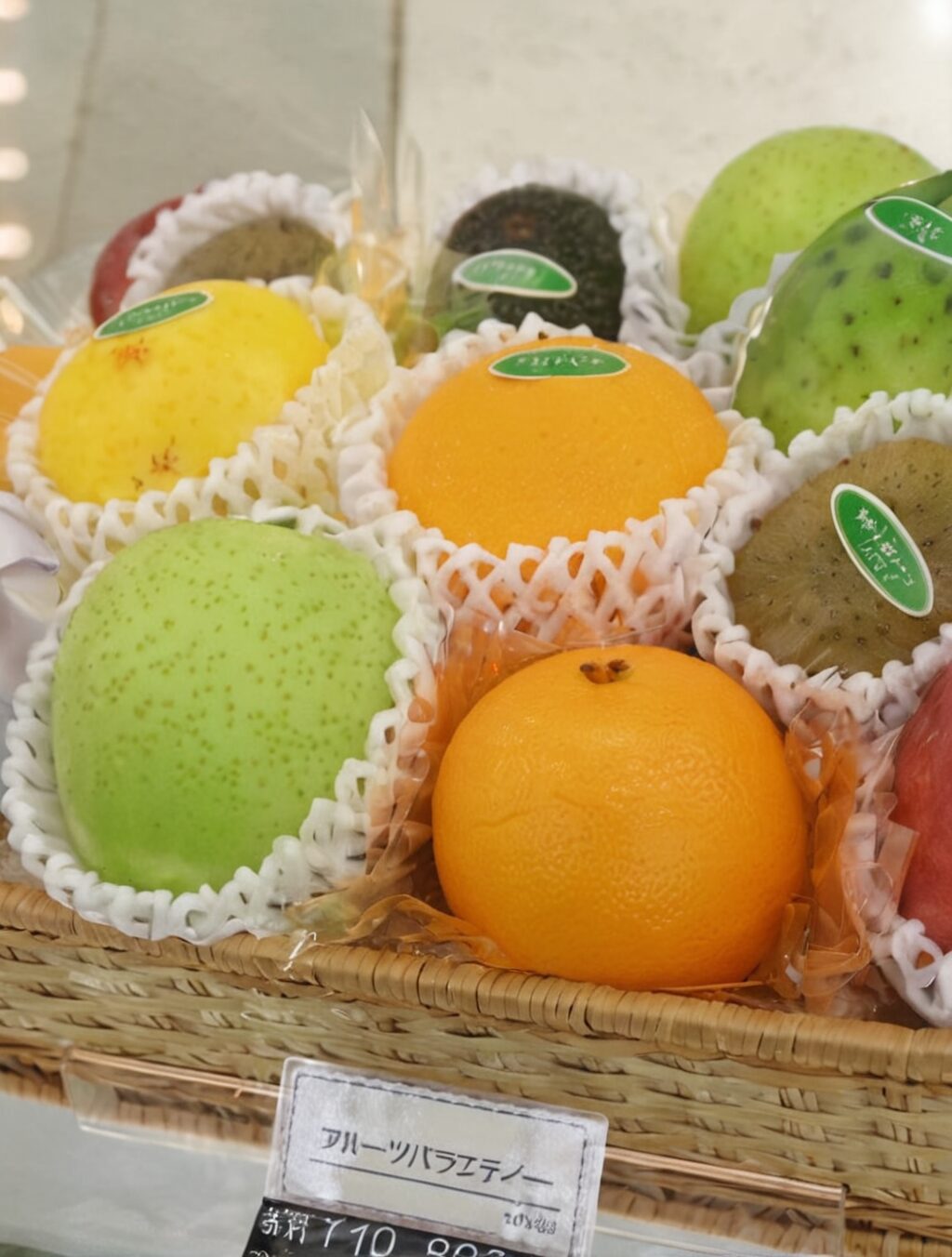Thoughtful Gifting in Japan: A Guide to Customs and Etiquette
Win a Free Trip to Japan!
Experience cherry blossoms and ancient temples
In the vibrant tapestry of Japanese culture, the art of gifting holds a special significance. From the delicate nuances of selecting the perfect present to the heartfelt act of presenting it, each gesture carries a profound meaning. Whether you’re a seasoned traveler or simply curious about this fascinating tradition, here’s a comprehensive guide to navigate the intricacies of gifting in Japan.
Unveiling the Customs
- Choose Wisely: Gifts should reflect thoughtfulness and respect. Avoid overly personal or expensive items.
- Presentation Matters: The wrapping is as important as the gift itself. Opt for elegant wrapping paper and delicate ribbons.
- Greetings and Gestures: When presenting a gift, bow politely and say “Kore, dozo” (“Here, please”).
Fruits of Appreciation
In Japan, gifting fruit is a symbol of gratitude and prosperity. Choose seasonal fruits and present them in a beautifully arranged basket.
The Language of Giving
Japanese has specific phrases for different gifting occasions. Familiarize yourself with the appropriate expressions to convey your heartfelt intentions.
Unveiling the Forbidden
Certain items are considered taboo gifts in Japan. These include sharp objects (like knives), combs (associated with death), and handkerchiefs (seen as a symbol of farewell).
FAQs
- Can I give money as a gift? Money is generally not an appropriate gift in Japan, unless it’s in a special envelope designed for the purpose.
- What should I do if I receive a gift? Accept it graciously and return the favor with a thoughtful gift.
- How do I say “thank you” in Japanese? The most common phrase is “Arigato gozaimasu.”
Conclusion
Gifting in Japan is an intricate dance of tradition and sentiment. By embracing its customs and avoiding faux pas, you can navigate this cultural tapestry with grace and create lasting connections with the people of Japan. Remember, it’s not just about the present you give, but the heartfelt intentions you convey.
gifting in japan
Navigating the Art of Gifting in Japan: Customs, Etiquette, and More
In the enchanting realm of Japanese culture, the act of gifting holds immense significance, transcending mere material exchange and becoming a heartfelt expression of respect, appreciation, and connection. Whether you’re a seasoned traveler or simply curious about this fascinating tradition, here’s a comprehensive guide to help you navigate the intricacies of gifting in Japan.
Unveiling the Customs
- Thoughtful Selection: Gifts should reflect the giver’s thoughtfulness and respect for the recipient. Avoid overly personal or expensive items.
- Presentation Matters: The wrapping is as important as the gift itself. Opt for elegant wrapping paper and delicate ribbons.
- Greetings and Gestures: When presenting a gift, bow politely and say “Kore, dozo” (“Here, please”).
Gifting Nuances
- Knives and Sharp Objects: Traditionally considered taboo gifts, as they symbolize cutting ties.
- Money: Generally not an appropriate gift, unless it’s in a special envelope designed for the purpose.
- Flowers: While flowers are often given, avoid white flowers, which are associated with funerals.
- Gifts for Special Occasions: Different occasions call for specific gifts. For example, omiyage (souvenirs) are brought back from travels, while ochugen (summer gifts) are exchanged in July and August.
Etiquette and Protocol
- Receiving Gifts: Accept gifts graciously and return the favor with a thoughtful gift.
- Saying “Thank You”: The most common phrase is “Arigato gozaimasu.”
- Refusing Gifts: Politely decline gifts that make you uncomfortable.
FAQs
- What are some unique Japanese gift-giving customs? Omiyage (souvenirs) and ochugen (summer gifts) are examples of occasion-specific gifting traditions.
- Can I give handmade gifts? Yes, handmade gifts are often appreciated and demonstrate your personal touch.
- What should I avoid when gifting in Japan? Avoid giving sharp objects, money (unless in a special envelope), and white flowers.
Conclusion
Gifting in Japan is an intricate dance of tradition and sentiment. By embracing its customs and avoiding faux pas, you can navigate this cultural tapestry with grace and create lasting connections with the people of Japan. Remember, it’s not just about the present you give, but the heartfelt intentions you convey.
gifting customs in japan
Unveiling the Art of Gifting: A Cross-Cultural Journey from Spain to Japan
In the tapestry of human interactions, the act of gifting holds a special significance, transcending mere material exchange and becoming a heartfelt expression of appreciation, respect, and connection. From the vibrant streets of Spain to the serene temples of Japan, gifting customs vary widely, offering a fascinating glimpse into different cultures. Join us as we explore the unique nuances of gifting in these two captivating countries.
Spanish Gifting Customs
- Thoughtful Gestures: Gifts are often chosen with great care and reflect the giver’s thoughtfulness and affection.
- Personalized Presents: Unique and personalized gifts are highly valued, showcasing the giver’s effort and attention to detail.
- Social Occasions: Gifts are commonly exchanged during social gatherings, such as birthdays, weddings, and Christmas.
Japanese Gifting Culture
- Respect and Etiquette: Gifting in Japan is steeped in tradition and etiquette, with great importance placed on the presentation and meaning behind each gift.
- Symbolic Meanings: Gifts often carry symbolic meanings, representing wishes for good luck, prosperity, or health.
- Omiyage and Seasonal Gifts: Giving omiyage (souvenirs) and seasonal gifts is an integral part of Japanese culture.
Corporate Gifting in Japan
- Building Relationships: Corporate gifting plays a crucial role in establishing and maintaining business relationships.
- Thoughtful Selections: Gifts are carefully chosen to reflect the recipient’s position and the company’s appreciation.
- Etiquette and Protocol: Strict etiquette is observed when exchanging corporate gifts, including the use of appropriate wrapping and presentation.
Gifting in Anticipation of Death
- Cultural Traditions: In some cultures, including Japan, it’s customary to give gifts in anticipation of death.
- Symbolic Gestures: These gifts often serve as expressions of gratitude, apology, or wishes for the deceased’s well-being in the afterlife.
- Etiquette and Customs: Specific customs and traditions govern the giving and receiving of such gifts.
Conclusion
The art of gifting is a tapestry woven with the threads of culture, tradition, and human connection. By understanding the unique nuances of gifting in different societies, we can navigate these customs with grace and create meaningful interactions across cultures. Whether it’s the heartfelt gestures of Spain or the intricate etiquette of Japan, gifting remains a powerful way to express our appreciation, respect, and the bonds that unite us.


